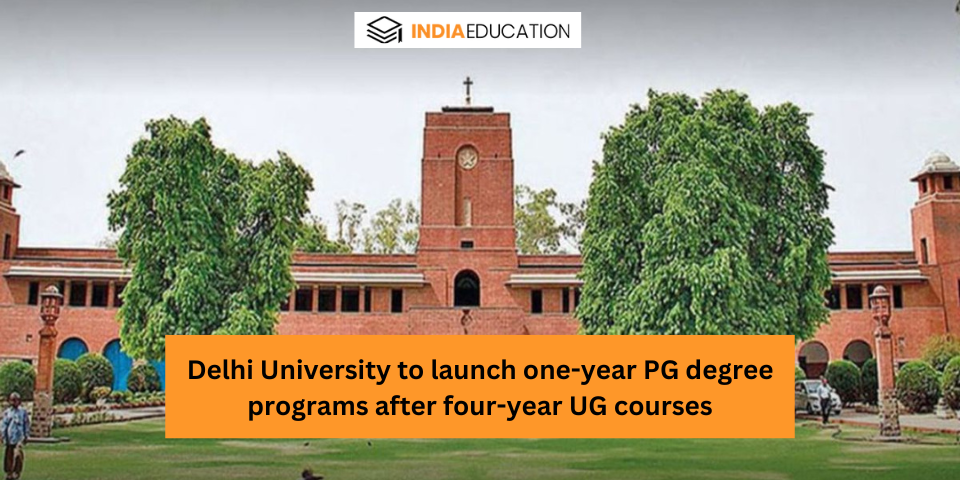Delhi University to implement one-year PG programs as part of its NEP compliance plan
Delhi University is planning to implement the National Education Policy (NEP) at the postgraduate (PG) level by offering a one-year course running alongside the existing four-year undergraduate programme. The university is developing a transitionary period to enable two-year and one-year master’s programmes. DU has already created MoUs with 25 foreign universities and plans to develop joint and twin degree programmes.

Delhi University, which successfully implemented the four-year undergraduate program (FYUP), is now preparing to implement the National Education Policy (NEP) at the postgraduate level. According to NEP guidelines, the PG program will be one year long and will run alongside the four-year UG program. Vice Chancellor Yogesh Singh told the Times of India that both two-year and one-year master’s programs may coexist for a few years during the transition period.
The university is also actively developing modalities for twinning programs, which would allow DU students to study at foreign universities for a semester and earn credits. NEP will be three years old on July 29, and DU claims to be the first university to implement the FYUP.
Vice-Chancellor Yogesh Singh said that Delhi University is working on implementing the National Education Policy (NEP) for postgraduate students. The university is focusing on the curriculum and modalities of the program.
A transitional period will allow both two-year and one-year master’s programs. Students graduating from other universities after a three-year undergraduate program will be eligible for the two-year postgraduate program, while those completing a four-year undergraduate program will qualify for the one-year postgraduate program.
DU has already established memorandums of understanding (MoUs) with 25 foreign universities and plans to develop twinning, dual, and joint degree programs. The university is also planning to offer academic mobility for students in central universities and ability-enhancement courses in the 22 languages of the Eighth Schedule.
To accommodate niche language courses with smaller student numbers, colleges will form clusters to offer joint teaching.
Dean of Academic Affairs K Ratnabali highlighted that the undergraduate curriculum framework is student-centric, multidisciplinary, and includes skill subjects and research and innovation. Additionally, the education policy supports lifelong learning, up-skilling, and re-skilling with a range of vocational courses catering to diverse interests, such as aquaculture entrepreneurship, fish farming, and ornamental fish production.






